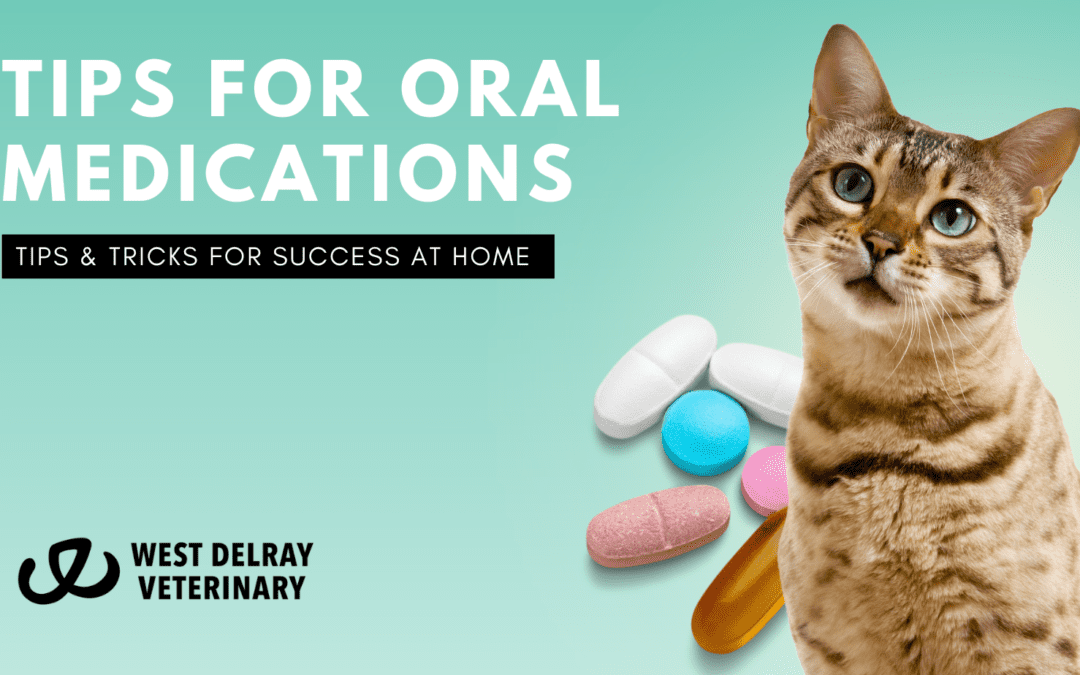Administering oral medication to pets can be a difficult undertaking, but this advice from West Delray Veterinary provides tips to make the process easier for both you and your pet.
Many pet owners may feel that administering oral medication to their pets is an overwhelming and difficult task. Whether it’s an important antibiotic or a weekly vitamin, getting your dog or cat to take their prescription medication can be tough. At West Delray Veterinary, we recognize the significance of this part of pet care and are available to provide assistance and support to make the process as smooth as possible.
The first step in effectively administering oral medication to your pet is to stay calm and be patient. Animals can detect anxiety in their owners, which can make the process more challenging. Approach your pet with a soothing voice and a gentle approach to put them at ease. It is also helpful to choose a quiet, comfortable space where your pet feels safe to administer medications.
For many dogs and cats, hiding medication in food can be an efficient strategy. To conceal the pill, use a small piece of cheese, peanut butter, moist food, or a specifically designed pill pocket treat. Make sure your dog enjoys the treat so that he or she will eat it without hesitation. If your pet tends to chew their food thoroughly, place the tablet at the back of their tongue before softly closing their mouth and stroking their throat to encourage swallowing.
It can be more challenging to hide medications in the food of cats since they can be more picky about what they consume. One way is to crush the tablet and mix it with a little bit of wet food or a strong-smelling treat to ensure that the complete dose is consumed. If this does not work, you may need to use a pill dispenser or your hands to administer the medication straight into your cat’s mouth. Gently tilt your cat’s head back, open their mouth, and insert the pill onto the back of their tongue. To stimulate swallowing, close their mouth and softly massage their throat or blow into their nose.
Positive reinforcement, including praise, affection, and a favorite food, is strongly encouraged after administering medication to your pet. This can help lessen anxiety and improve acceptance of future doses.
In certain circumstances, liquid medication may be recommended instead of pills. Giving liquid medication can be less stressful for both you and your pet. Use a syringe or dropper to carefully push the tip into the side of your pet’s mouth, aiming for the cheek pouch. Slowly distribute the medication, enabling your pet to ingest at their own rate. Always follow your veterinarian’s recommendations for dose and administration methods.
At West Delray Veterinary, we understand that each pet is unique and may require different approaches to medication. Our team is here to provide personalized advice and support to ensure your pet receives the care they require. If you encounter difficulties or have concerns about administering medication, please contact us for assistance. Our team can even help administer medications if need be!
Struggling with giving your pet medication? Contact West Delray Veterinary at (561) 777-7173 or visit us at 15065 US-441, Suite 750, Delray Beach, 33446 for expert advice and personalized support. We’re here to help you and your furry friend every step of the way.

